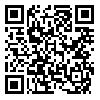Volume 13 -
IJMEHM 2020, 13 - : 263-272 |
Back to browse issues page
Download citation:
BibTeX | RIS | EndNote | Medlars | ProCite | Reference Manager | RefWorks
Send citation to:



BibTeX | RIS | EndNote | Medlars | ProCite | Reference Manager | RefWorks
Send citation to:
Ghandi M, Dehnavieh R, Goudarzi R, Almasi Doughaee M, Akbarfahimi M. Health Technology Assessment of Occupational therapy in Elderly with Dementia from Ethical and Legal Aspects. IJMEHM 2020; 13 :263-272
URL: http://ijme.tums.ac.ir/article-1-6229-en.html
URL: http://ijme.tums.ac.ir/article-1-6229-en.html
Marjan Ghandi * 
 1, Reza Dehnavieh2
1, Reza Dehnavieh2 
 , Reza Goudarzi3
, Reza Goudarzi3 
 , Mostafa Almasi Doughaee4
, Mostafa Almasi Doughaee4 
 , Malahat Akbarfahimi5
, Malahat Akbarfahimi5 


 1, Reza Dehnavieh2
1, Reza Dehnavieh2 
 , Reza Goudarzi3
, Reza Goudarzi3 
 , Mostafa Almasi Doughaee4
, Mostafa Almasi Doughaee4 
 , Malahat Akbarfahimi5
, Malahat Akbarfahimi5 

1- MSc of Health Technology Assessment, Kerman University of Medical Sciences, Kerman, Iran
2- Associate Professor, Department of Health Services Management, School of Management and Medical Information, Kerman University of Medical Sciences, Kerman, Iran
3- Assistant Professor, Department of Health Economics, School of Management and Medical Information, Kerman University of Medical Sciences, Kerman, Iran
4- Assistant Professor, Department of Neurology, School of Medicine, Iran University of Medical Sciences, Tehran, Iran
5- Associate Professor, Department of Occupational Therapy, School of Rehabilitation Sciences, Iran University of Medical Sciences, Tehran, Iran
2- Associate Professor, Department of Health Services Management, School of Management and Medical Information, Kerman University of Medical Sciences, Kerman, Iran
3- Assistant Professor, Department of Health Economics, School of Management and Medical Information, Kerman University of Medical Sciences, Kerman, Iran
4- Assistant Professor, Department of Neurology, School of Medicine, Iran University of Medical Sciences, Tehran, Iran
5- Associate Professor, Department of Occupational Therapy, School of Rehabilitation Sciences, Iran University of Medical Sciences, Tehran, Iran
Abstract: (1898 Views)
Dementia is a major health problem due to the high costs of treatment, high prevalence in the elderly, severe consequences, and the imposition of physical and psychological stresses on families of the patients. Occupational therapy is one of the most important approaches among many technologies employed for helping the patient and reducing the burden of healthcare for patients. This applied study aimed to investigate the ethical and legal aspects of occupational therapy technology in the elderly with dementia using qualitative methods. The study population consisted of 12 specialists and practitioners in the field of dementia and elderly services in the country. Data collection was carried out by interviewing the expert subjects. The results of this study showed that beneficence/non- maleficence, autonomy/informed consent, maintaining dignity/respect for persons, concern for equality and justice in accessing services, legal support for technology use, need for the principle of discretion, and patient confidentiality, and proper technology utilization are seven major ethical and legal challenges in occupational therapy technology in the country. According to the results, lack of insurance coverage for occupational therapy technology and the lack of access to this service for the elderly are major barriers to its application and the Ministry of Health must provide the initiatives for its implementation across the country and place it in the elderly service package.
Type of Study: Research |
Subject:
Medical Ethics
Received: 2020/02/25 | Accepted: 2020/03/20 | Published: 2020/03/20
Received: 2020/02/25 | Accepted: 2020/03/20 | Published: 2020/03/20
| Rights and permissions | |
 |
This work is licensed under a Creative Commons Attribution-NonCommercial 4.0 International License. |



